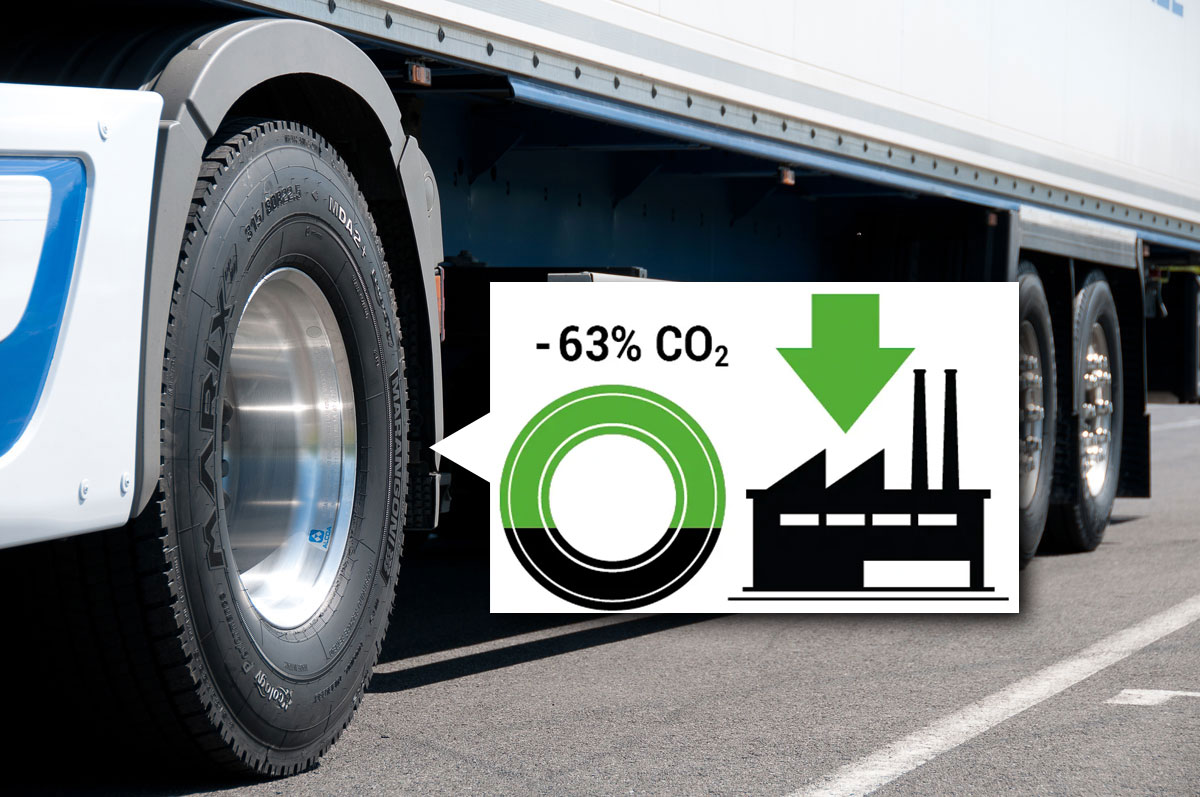15 Dec Premium retreaded tyres outperformed new, high-quality tyres in a new Life Cycle Analysis
A retreaded truck tyre causes around 135 kg or 63,6 percent less CO2 emissions than a new truck tyre and has the same rolling resistance rating.

Retreaded tyres emit over 60% fewer CO2 emissions than new tyres of equal quality. This is the key conclusion of a recent study led by the Fraunhofer Institute for Environmental, Safety, and Energy Technology (UMSICHT), commissioned by Allianz Zukunft Reifen (AZuR), a network of organisations of which Marangoni is part. Our company contributed to the investigation by providing some of the products/materials used in the tests.
The leading causes of these results are the energy (electricity/gas) and raw material savings made throughout the production process. A retreaded truck tyre causes around 135 kg or 63,6 percent less CO2 emissions than a new truck tyre.
The Fraunhofer study considered both the production and the use phases, which are heavily influenced by the tyre’s rolling resistance. According to the TüV North laboratory tests, retreaded tyres achieve the same rolling resistance classification as the new tyres on whose casings they are based.
Rolling resistance, which is only 1% more than that of new tyres of equal grade, is significantly outweighed by the benefits of the CO2 reductions realised throughout the manufacturing process.
Retreaded truck tyres emit about the same amounts of CO2 over a 150,000 km lifespan as premium new tyres of equivalent quality. With a mileage of 65,000 km, retreaded truck tyres have a lower carbon footprint than high-quality new tyres of comparable quality.



